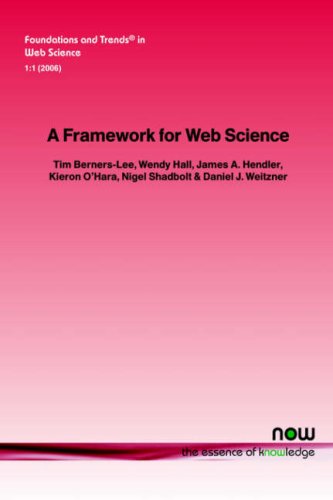The Concept of Supervenience and the Web
One view is reminiscent of the philosophical idea of supervenience [168, 169]). One discourse or set of expressions A supervenes on another set B when a change in A entails a change in B but not vice versa. So, on a supervenience theory of the mind/brain, any change in mental state entails some change in brain state, but a change in brain state need not necessarily result in a change in mental state. Supervenience is a less strong concept than reduction (a reductionist theory of the mind/brain would mean one could deduce mental state from brain state, that psychology follows from neuroscience). And it has been thought over the years that supervenience is a good way of explaining the generation of meaning: uninterpreted material in the lower layers of discourse is organised in significant ways so that the material in the upper layers is constrained to be meaningful. It may be appropriate to think of the Web as having this sort of supervenience layering: the meaningful constructs at the top depending crucially on meaningless constructs in HTML or XML or whatever below.
If we are to see the higher levels of the Web as supervenient on the lower, then the question arises as to what the foundational levels of the Web are, and the further question of whether they have to take some particular form or other.
Notes:
Where changes in one concept cascade into changes on another, but not vice versa.
Folksonomies: web science semantic web supervenience
Taxonomies:
/technology and computing/programming languages (0.435073)
/law, govt and politics/legal issues/legislation/tax laws (0.419925)
/science/social science/linguistics (0.412414)
Keywords:
supervenience (0.961998 (negative:-0.180851)), brain state (0.851529 (negative:-0.402885)), mental state (0.851488 (negative:-0.402885)), supervenience theory (0.763510 (neutral:0.000000)), supervenience layering (0.750379 (positive:0.262017)), concept cascade (0.579075 (neutral:0.000000)), change (0.554654 (positive:0.007534)), philosophical idea (0.553832 (positive:0.475299)), meaningless constructs (0.545461 (negative:-0.420128)), meaningful constructs (0.545105 (negative:-0.420128)), reductionist theory (0.541698 (negative:-0.659461)), lower layers (0.537329 (negative:-0.446794)), strong concept (0.537021 (negative:-0.558120)), upper layers (0.536477 (negative:-0.446794)), good way (0.526000 (positive:0.394493)), significant ways (0.524885 (negative:-0.446794)), foundational levels (0.524090 (neutral:0.000000)), particular form (0.520497 (neutral:0.000000)), uninterpreted material (0.512376 (negative:-0.446794)), higher levels (0.511692 (neutral:0.000000)), Web (0.476030 (positive:0.262017)), discourse (0.423104 (negative:-0.164664)), mind/brain (0.396408 (negative:-0.659461)), changes (0.396393 (neutral:0.000000)), question (0.390200 (neutral:0.000000)), expressions (0.350379 (positive:0.282130)), view (0.349757 (positive:0.475299)), sort (0.348842 (positive:0.262017)), neuroscience (0.348006 (negative:-0.419352)), psychology (0.345322 (negative:-0.419352))
Entities:
Supervenience:City (0.864540 (positive:0.029609))
Concepts:
Mind (0.969639): dbpedia | freebase | opencyc
Psychology (0.883585): dbpedia | freebase | opencyc
Cognition (0.876530): dbpedia | freebase | opencyc
Emergentism (0.851237): dbpedia | freebase
Thought (0.845582): dbpedia | freebase | opencyc
Abstraction (0.731001): dbpedia | freebase
Semantics (0.708948): dbpedia | freebase | opencyc
Philosophical logic (0.681209): dbpedia





